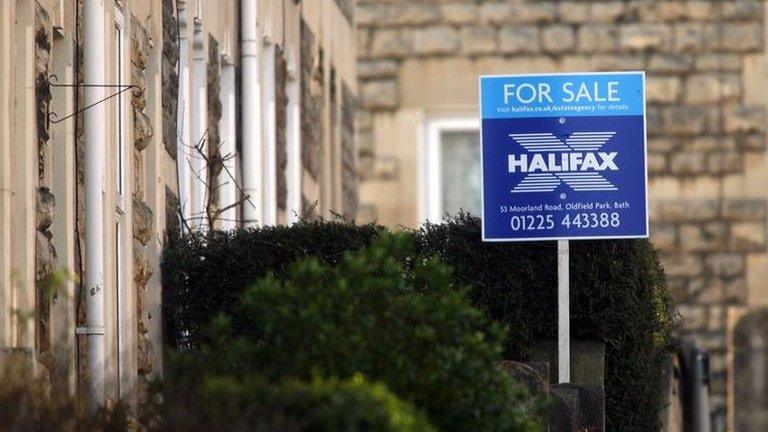Budget 2018: What do the housing measures mean?
- Published
- comments
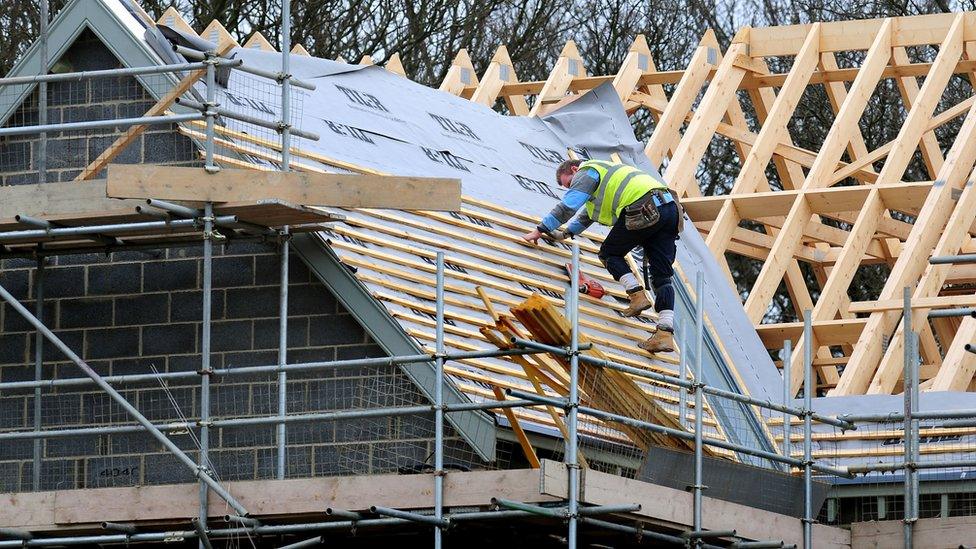
More help for first-time buyers and plans for homes on the High Street have been announced in the Budget.
Most first-time buyers of shared ownership properties will now no longer pay stamp duty, under the measures.
Chancellor Philip Hammond also said that the Help to Buy scheme would end in 2023 - an extension of two years.
Mr Hammond said the housing market needed to be fixed, adding it was key to boosting UK productivity and living standards.
The UK is facing a shortage of housing. The number of homes on the market is at a 10-year low and fewer people are taking out mortgages.
So what has the chancellor said he is going to do about it?
Was there any help for first-time buyers?
In last year's Autumn Budget, the chancellor abolished stamp duty - a tax you pay if you buy property or land - for first-time buyers buying a home worth up to £300,000.
It has so far helped 121,500 people, the chancellor said, and the number of first-time buyers is at an 11-year high.
Now, stamp duty will also be abolished for first-time buyers of shared ownership properties - when someone buys between 25% and 75% of a home and then rents the rest of it.
It will apply to all shared ownership homes worth up to £500,000 and backdated to anyone who has bought one since last year's Budget.
There are more than 200,000 shared ownership properties in the UK.
Kevin Roberts, the director of the Mortgage Club at financial services firm Legal & General, said the move showed the government "clearly recognises the benefits" of shared ownership and he hoped the announcement would boost awareness of the scheme.
The Budget also announced that the Help to Buy scheme - which sees the government loan money to first-time buyers - will come to an end in 2023. It was originally due to end in April 2021, but received a two-year extension.


More homes on High Streets?
As part of his £1.5bn boost to help the UK's struggling High Streets, Mr Hammond announced he was creating a £675m fund to help councils transform their main retail zones.
Part of this money could be spent on turning unused High Street shops or commercial buildings into homes, he said.
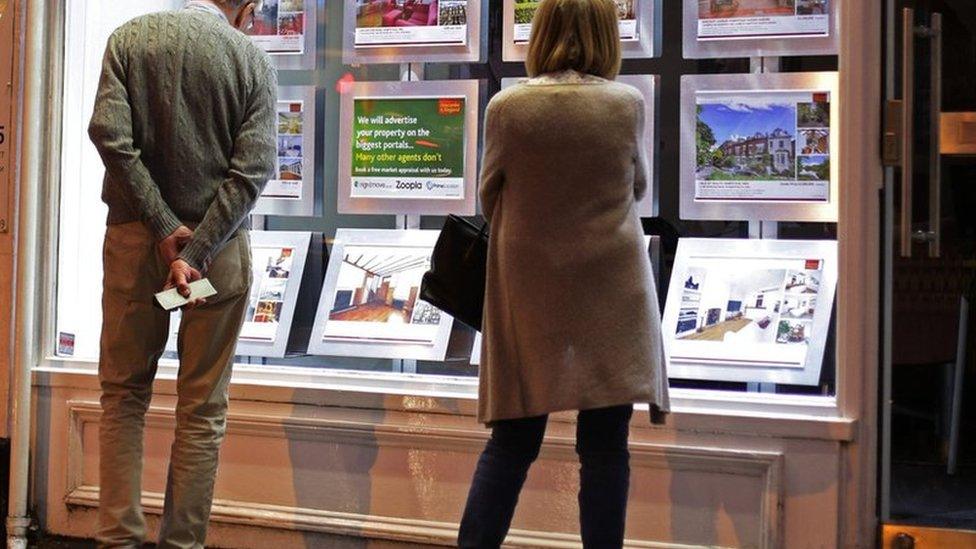
"If British High Streets are to remain at the centre of our community life, they will need to adapt," Mr Hammond said.
He also said the government was going to consult on how to simplify the process of converting commercial buildings into homes.
The Federation of Master Builders, representing construction firms, said Mr Hammond had taken "positive steps" to address the housing crisis.
Brian Berry, chief executive of the FMB, estimates as many as 300,000 to 400,000 new homes could be created by making use of empty space above shops on High Streets.
He urged councils to work with local builders and developers to make the use of this "wasted space".
But Labour MP Helen Hayes said she was concerned at the chancellor's plans to simplify the process of converting commercial buildings into homes, saying that relaxing planning regulations had created "appalling" housing.
Allow X content?
This article contains content provided by X. We ask for your permission before anything is loaded, as they may be using cookies and other technologies. You may want to read X’s cookie policy, external and privacy policy, external before accepting. To view this content choose ‘accept and continue’.
Will more homes be built?
Mr Hammond promised an extra £500m for the Housing Infrastructure Fund - a pot of money that local councils can apply to for help with building homes.
This extra cash should help build 650,000 more homes, he said.
The government has also struck deals with nine housing associations to deliver 13,000 homes across England.
And the chancellor wants to see more SMEs - small and medium-sized enterprises - building houses, so has announced up to £1bn of British business bank guarantees.
Mr Hammond also said he was providing money to help up to 500 neighbourhoods to allocate land for housing and sell the homes to local people at a discount.
He also confirmed that the cap on councils, which limits their ability to borrow money to build council houses, would be scrapped. Theresa May had already promised the cap would be scrapped in her Conservative Party conference speech.
Mr Hammond's announcements come after analysis earlier this year suggested that house-building across half of England was slower than it was before the 2008 financial crash.
- Published29 October 2018
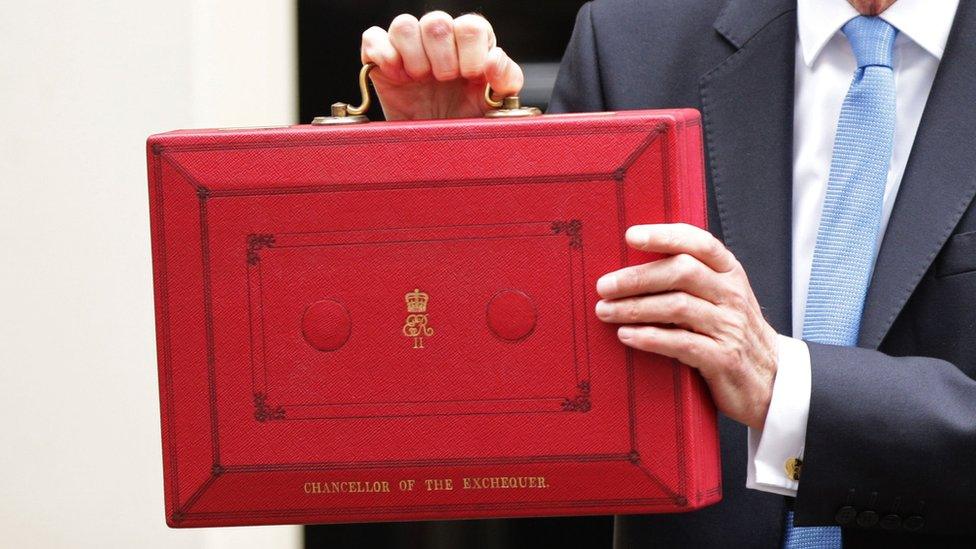
- Published29 October 2018

- Published29 October 2018
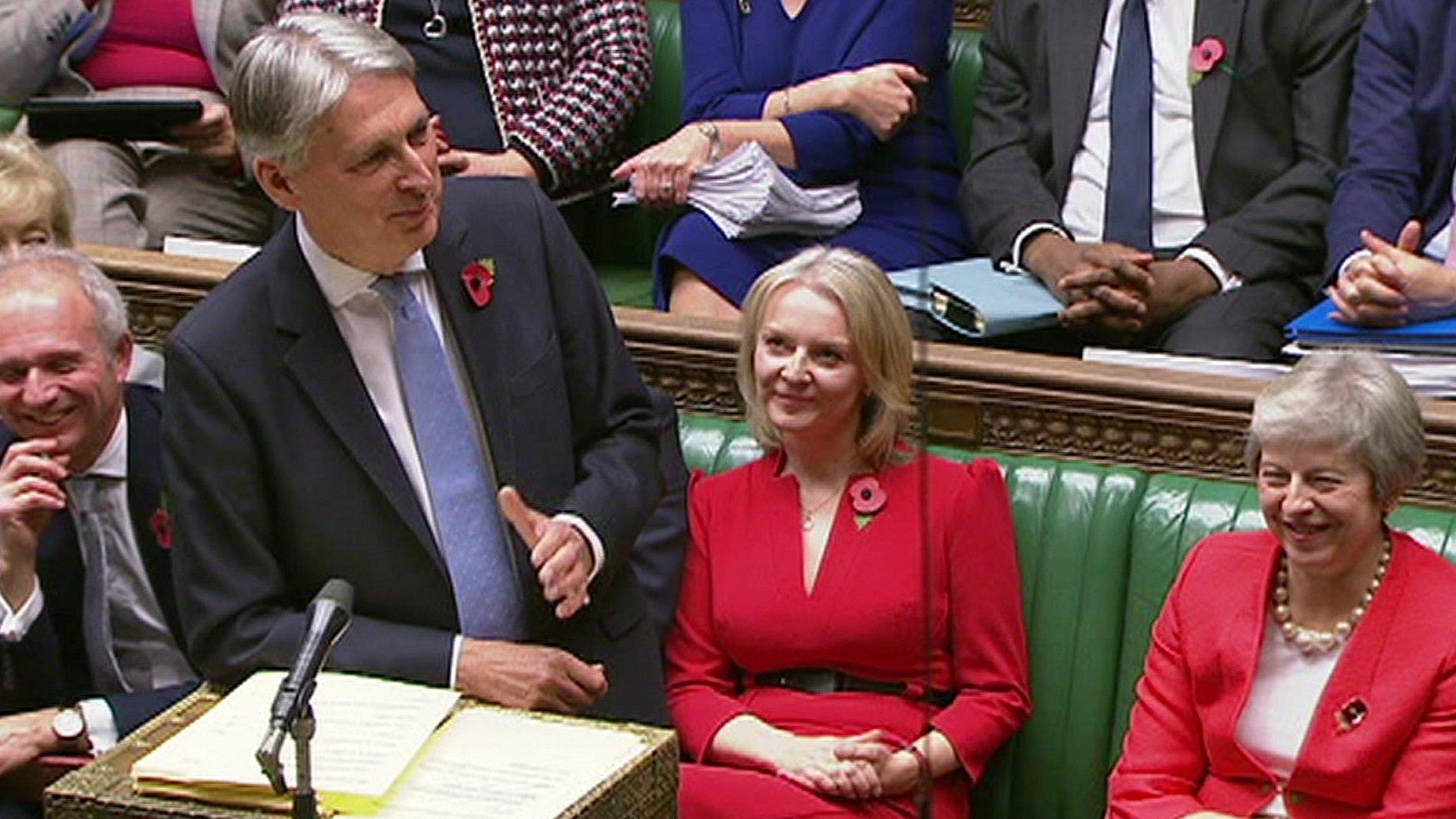
- Published29 October 2018
- Published5 October 2018
